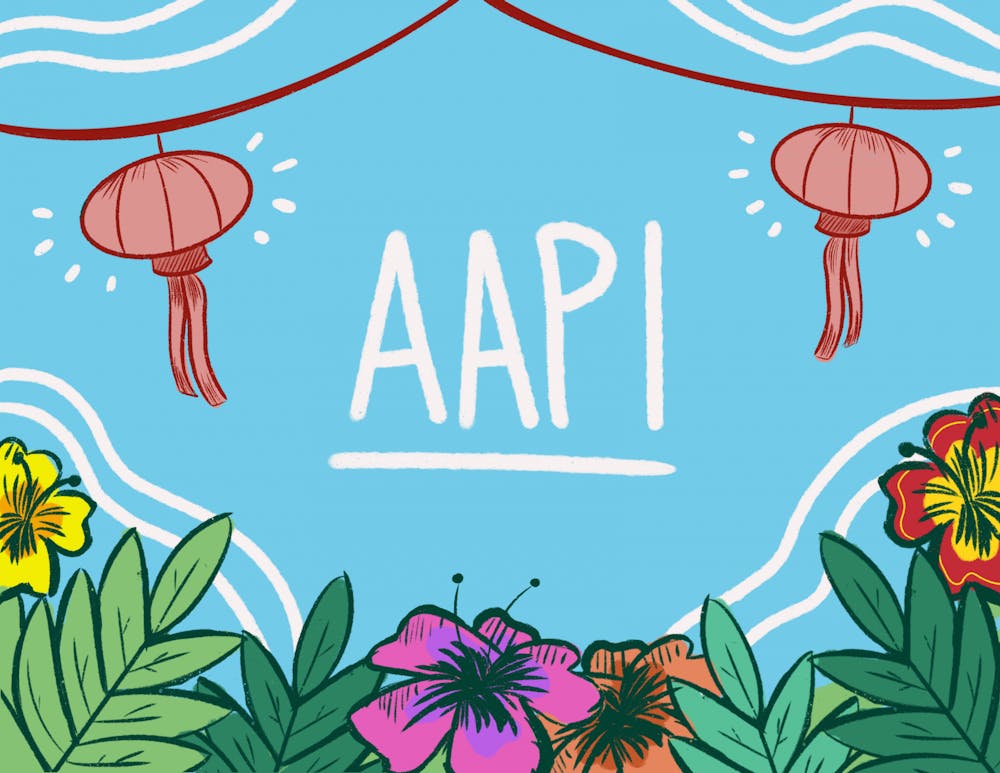The month of May celebrates Asian American Pacific Islander Heritage Month, recognizing the contributions of Asian and Pacific Islander Americans to United States history. Ohio University students celebrate this month and their culture, in hopes to remember and embrace that history.
The month commemorates the migration of the first immigrants from Japan to the United States on May 7, 1843. It also celebrates the completion of the transcontinental railroad by over 20,000 Chinese immigrants on May 10, 1869. Prior to the holiday becoming a month, it was originally celebrated in the first week of May.
Gabbie Buhay, a junior studying pre-occupational therapy psychology, works as the director of programming for the Asian American/Pacific Islander Student Union. She said she joined AAPISU because she wanted to meet other students who had similar cultural experiences and heritages.
“It was important for me to get in touch or stay connected to my culture because I’m also an immigrant,” Buhay said. “So not only is distance a factor in maintaining my culture and heritage, but it’s also the people I surround myself with.”
Buhay and her family immigrated from the Philippines to the United States in 2016. Prior to celebrating with AAPISU members at OU, Buhay said she never really celebrated the heritage month at home or school during May. Instead, her family incorporates their culture and tradition year-round through traditional recipes, such as chicken adobo and lumpia.
“My mom does a great job of trying to cook meals that she grew up with and we also grew up with back in the Philippines,” Buhay said. “That’s always been the most stable thing because you can have food anytime of the year.”
Similar to Buhay, Lily Biros, a senior studying strategic communication and vice president of the AAPISU, said she celebrates her culture year-round, not necessarily waiting for May to embrace it.
“I feel like this month isn’t really any different than any other month,” Biros said.
Aireen Maurisio, a sophomore studying psychology and president of the AAPISU, initially joined the organization to learn more about Pacific Islander people after growing up with a white family. She said she did not learn much about the culture, as she attended a majority white school.
“I felt like I needed to explore the other side of myself that kind of got neglected,” Maurisio said.
The organization hosted an AAPI Heritage Celebration Week in April so all students could celebrate before leaving campus in May. Events included a cherry blossom picnic in Tailgreat Park, an AAPI speaker panel and a keynote speaker lecture with Award-winning filmmaker Sahra Nguyen.
Buhay said her favorite event was a movie showing of Minari, about an Korean American family trying to establish their roots in the state of Arkansas.
Maurisio said many different types of students attended the week of events, and how great it was to see students take an interest in her culture.
“I had plenty of people ask me about where my heritage is from, which I don’t really get much,” Maurisio said. “People being interested in the other part of myself and hearing what little I know about it… they encouraged me to learn more myself so that way I can keep sharing it.”
In addition to the Heritage Week, the organization hosts similar events year-round to showcase different cultures and heritages to all students.
“Throughout the year, our main focus was creating the community and culture within the organization,” Biros said. “And so, we’ve been trying to emphasize social events, getting to know our members, and just trying to meet everyone else.”
As more students become interested in the organization and AAPI culture as a whole, Buhay said the best way students can celebrate without appropriating Asian and Pacific Islander culture is simple.
“Just show up,” Buhay said. “Be curious, have an open mind and just don’t be judgmental about what looks kind of weird. What may seem weird could just be very normal to other folks.”
Biros also suggested that students who want to learn about Asian American and Pacific Islander culture should do research on the topic and become more involved.
“I think the best way for anyone to celebrate is to read up, research and get to know the topic the best,” Biros said. “I feel like the push for Asian American Awareness Week in the month is to erase harmful stereotypes, to celebrate different types of AAPI identities within the organization and to move past what has been harmful and to celebrate what is good.”






